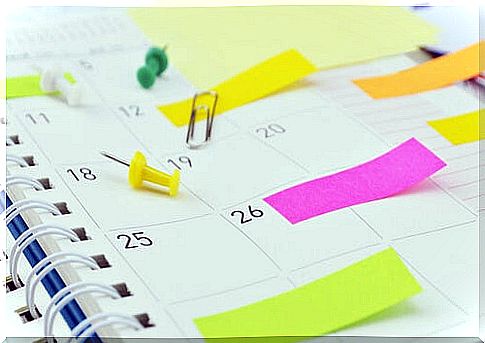The Folly Of Multitasking: Too Many Things At Once

We live in a world that is constantly moving at a fast pace. Transport and communication between people and places has evolved in such a way that we can move from one place to another as quickly as possible.
We are becoming more and more accustomed to a life that is full of screens, messages, sounds and conversations all happening at the same time. These things shorten the distance between people, but at the same time slow us down due to the many distractions, tasks and activities that come with them.
So what are the consequences of multitasking? What happens to us when we try to do way too much at once?
Multitasking: what happens when we do too many things at once?
Multitasking means that you try to perform several tasks at the same time. However, this can actually make you less productive than you could be. When we multitask, we are unable to focus our concentration on one task and complete it completely.
In an increasingly direct society, we need answers and results that are fast and accurate. In this sea of information, we need to determine which tasks are most relevant and focus our attention on them.

The human brain, that organ that is so wonderful and mysterious, also has its limits. It seems that we collapse when we have to manage a large amount of information and this only makes us make more mistakes in everything we try to do.
As a result, we sit down at the end of the day, after sitting all day, and can feel like we haven’t really done anything all day and are still exhausted.
Quality over quantity
To avoid feeling like we’re constantly being pulled from one place to another, we need to plan our day clearly and set realistic goals for ourselves. These goals should be clear and not too difficult.
In order to do this effectively, it is always useful to have an agenda or daily planner at hand in which you can make a list of everything you have to do that day and cross off what you have already done, so that you have a clear overview. have an overview of what still needs to be done.
It can also be helpful to categorize these daily tasks and activities. For example:
- Work: realistic tasks that you have to complete at work.
- Social: Messages to family and friends, appointments, updating your social networks.
- Leisure: sports, dancing, music, meditation etc…
By doing this, you ensure that you get a concrete picture of your day and your tasks. This will allow you to organize yourself more efficiently so that you can improve your productivity and never feel like you are behind or will forget something.
When we want to do everything, we end up doing nothing at all
We simply cannot do everything. This is a reality that we all have to accept. Sometimes we set too many goals for ourselves that we think we can accomplish all in one day. However, this planning can be unrealistic and in this case we will never be able to get it all done.
This is where we get disappointed. Instead of feeling satisfied with what we have achieved, thoughts like: ‘I couldn’t finish it…’, ‘I wasted my time…’, ‘I can’t do anything…’

It is better to determine to do less and thereby be able to do everything well. In addition, it’s important to say ‘no’ to the things we know we won’t be able to do. This also includes being sensible about the plans and promises we make with and to those around us.
While there are times when we need to be there for others, there are also times when it’s best to just give a sincere explanation of why you can’t be there and offer a more realistic alternative.
Focus on every step
In order to reach the end of the path, we must enjoy every step we take along the journey. We should do our best to enjoy every emotion we have to go through to achieve our goal, without thinking too much about the future outcome. That is the secret to being able to do something well.
Of course we should not lose hope, but often we are prepared for failure. Rather than helping us, it can actually paralyze us and prevent us from attempting at all.
The result of multitasking is that we only accomplish half of the tasks we give ourselves and that we leave a lot of questions unanswered. When this happens, we can experience anxiety and feel as if we have a lot of things hanging over our heads that still need to be done.
When these things start to pile up, we can become overwhelmed with a combination of thoughts like ‘I should have done this…’, ‘I don’t know how to handle this…’ and ‘I’m never going to be able to finish this… ”, which makes us feel less efficient. These thoughts can also cause our perception to change and make us feel like we are spending more, and too much, time on one specific thing. This downward spiral can cause insane and inefficient multitasking.
Get your rest
In this world full of stimuli, it sometimes seems as if we have completely forgotten what silence is. Silence is a great opportunity to feel free.
Cars, alarms, the news, notifications, etc. all flood our daily lives, causing our brains to shift their focus to something different every second, so they can tackle whatever demands their attention.
However, silence is not only helpful for relaxing our ears, but also for removing ourselves from the sights, sounds and smells of the city and our busy lives. By being completely absorbed in silence, we can create distance between ourselves and all the stimuli around us, except our own stimuli.
We need something similar to what protected areas and wetlands need: we feel the need to nurture our ecosystem.
So remember that it’s important to set concrete goals, plan your days and give yourself a moment of peace so that you give yourself the chance to be as productive and efficient as possible. Rather than having everything to do and feeling the pressure of multitasking, it’s important to determine what you want and what is realistic and focus on that.









